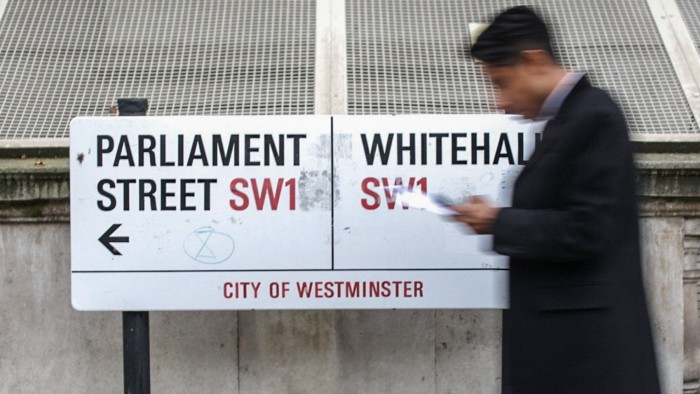Stay informed with free updates
Simply sign up to the Artificial intelligence myFT Digest — delivered directly to your inbox.
Civil servants who have used artificial intelligence tools for administrative tasks freed up two weeks a year in working time, according to a government trial that ministers said showed how the technology can achieve productivity gains across Whitehall.
In the study, more than 20,000 officials used Microsoft’s Copilot AI assistant over three months to help them draft documents, summarise meetings and prepare reports. These staff reported that they saved 26 minutes a day by using the tool.
Prime Minister Sir Keir Starmer’s government said it was pushing to make £45bn in cost savings by modernising the public sector with digital services and cutting-edge AI. However, some experts have also warned that the technology still suffers glitches that may not make it suitable for official work.
Ministers are also trying to attract overseas investment into the nascent AI sector by relaxing copyright laws, a move heavily criticised by the British creative industries groups.
“AI is changing the way government operates, helping us work smarter, reduce red tape, and make better use of taxpayers’ money,” said technology secretary Peter Kyle while unveiling the results of the study during the SXSW London conference on Monday.
During the UK government trial, workers at Companies House used Copilot to handle routine customer queries, draft responses and update records. Staff at the Department for Work and Pensions used it to personalise advice for jobseekers.
The tool was best at saving time drafting documents and creating presentations, which respondents said saved them 24 and 19 minutes a day respectively. However, 17 per cent of respondents said the tool did not save them any time at all.
Civil servants also reported overall happiness with the tools, with 82 per cent saying they wanted to continue using the technology.
A separate report also released on Monday by the Alan Turing Institute, a state-backed research body, found that up to 41 per cent of tasks across the public sector could be supported by AI. It said teachers had most to gain, through using AI tools for the majority of lesson planning.
In January, the government also announced it was developing a suite of AI tools called “Humphrey” for civil servants to boost productivity. Officials said they were developing new digital tools for citizens such as a new app to access government services, a chatbot and a digital wallet, which allows people to store government documents such as driving licences.
Authorities around the world have also experimented with AI tools with mixed results. Last year, a chatbot by New York City that was designed to help entrepreneurs was taken down after it encouraged users to break the law.
There also remain risks with the technology when applied in ways beyond using generative AI for efficiency gains.
The use by UK police forces of predictive policing algorithms, which claim to predict where crime is likely to happen, has drawn harsh criticism from human rights groups such as Amnesty International, which argue that these systems entrench racism and biases.
In 2021, the Dutch government had to resign after tax authorities used AI tools to weed out benefits fraud, only for the algorithms to be found to be biased against migrant communities and other marginalised groups, leading to thousands of innocent people being penalised.


